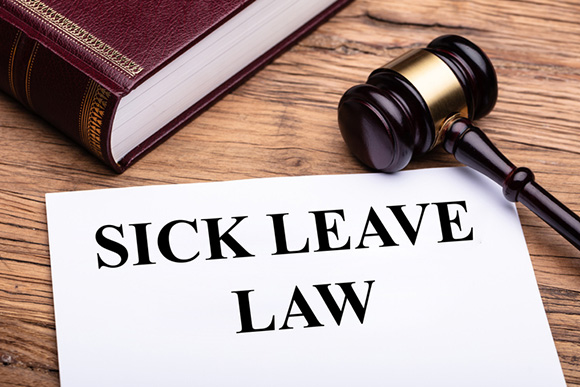The coronavirus emergency relief package, which became law Wednesday, gives many American workers paid leave if they need to take time off work because of the virus.
It is the first time the United States has had widespread federally mandated paid leave, and includes people who don’t typically get such benefits, like part-time and gig economy workers. But the measure excludes at least half of private-sector workers, including those at the country’s largest employers.

What type of paid leave does the law offer?
It gives qualified workers two weeks of paid sick leave if they are ill, quarantined or seeking diagnosis or preventive care for coronavirus, or if they are caring for sick family members. It gives 12 weeks of paid leave to people caring for children whose schools are closed or whose child care provider is unavailable because of coronavirus.
Which workers qualify?
Most workers at small and midsize companies and nonprofits can get the paid leave, as can government employees, as long as they’ve been employed at least 30 days.
Which workers are excluded?
Those at companies with more than 500 people — 48 percent of American workers — are excluded. Workers at places with fewer than 50 employees — 27 percent of workers — are included, but the Labor Department could exempt small businesses if providing leave would put them out of business. Employers can also decline to give leave to workers on the front lines of the crisis: health care providers and emergency responders.
Are part-time and self-employed workers eligible?
Yes. Part-time workers will be paid the amount they typically earn in a two-week period. People who are self-employed — including gig economy workers like Uber drivers and Instacart shoppers — can also receive paid leave, assuming they pay taxes. They should calculate their average daily self-employment income for the year, then claim the amount they take as a tax credit (they can reduce their estimated quarterly tax payments in the meantime).
How much money do I get while on leave?
If you are sick or seeking care for yourself, you earn the full amount you are usually paid, up to a maximum of $511 a day. If you are caring for a sick family member or a child whose school or day care is closed, you earn two-thirds of your usual pay, up to a daily limit of $200.
How do I go about taking leave?
The Labor Department must issue guidelines by April 2 to assist employers in calculating how much paid leave their employees should get. After that, you should be able to simply notify your employer, take the leave and get paid the amount specified by the law.
How will businesses and nonprofits afford to pay workers on leave?
They will be reimbursed for the full amount within three months, in the form of a payroll tax credit. (The Trump administration has said it will advance the money earlier for employers that can’t wait that long.) The reimbursement will also cover the employer’s contribution to health insurance premiums during the leave. It’s fully refundable, which means that if the amount that employers pay workers who take leave is larger than what they owe in taxes, the government will send them a check for the remainder. (That goes for self-employed and gig economy workers, too.)
What if I work at a big company?
You can take any sick leave your company already offers. Eighty-nine percent of employees at these companies have paid sick leave, but rarely as long as two weeks, and low-wage workers are least likely to have it. (Some big companies, like Walmart and Target, have added paid sick leave for coronavirus.) Under a 1993 law, you’re eligible for 12 weeks of unpaid family and medical leave, as long as your company has at least 50 employees; you’ve worked there for a year; and you meet other qualifications.
Why are big companies excluded?
Congressional Republicans and the Trump administration said excluding large companies was a prerequisite to passing the bill, according to people briefed on the discussions. They also asked for other limits on who could receive leave. For example, the original bill passed by the House would have given workers 12 weeks of paid leave to care for themselves or sick family members, instead of two. Paid leave was the most contentious part of the bill, congressional aides said.
Is the paid leave permanent?
No. It’s meant as a response to coronavirus, and expires Dec. 31.
Is the government going to give workers other aid?
Yes. This package included other types of aid, including unemployment benefits, free coronavirus testing and food and medical aid. The Trump administration has asked Congress for $1 trillion to make direct payments to American taxpayers and small businesses. And lawmakers are introducing other legislation, including a Democratic plan for more paid leave. The New York Times is running a hub for personal finance help during this crisis, with information about collecting unemployment, paying rent, paying bills and more.
Source
Miller, C. C. (2020, March 19). Who Qualifies for Paid Leave Under the New Coronavirus Law. Retrieved 20 March 2020, from https://www.nytimes.com/2020/03/19/upshot/coronavirus-paid-leave-guide.html
Disclaimer: The information in this article is from the source link above.





